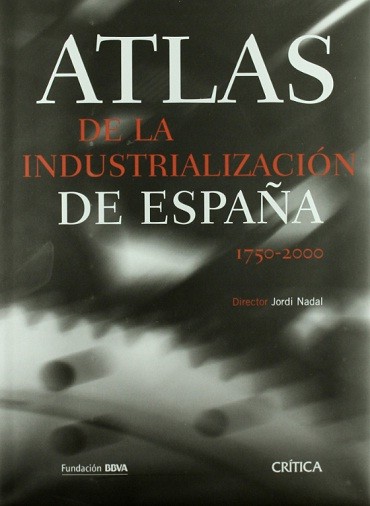
Publication
Atlas de la industrialización de España, 1750-2000
This project, led by professor Jordi Nadal with the involvement of a long list of economists and economic historians, is designed to facilitate the analysis of long-term economic processes such as output growth, the sectoral transformation of the economy and the progress of capitalization. Spain’s profound economic transformation is documented with the aid of over 600 graphs, table and maps, which can also be consulted on the accompanying CD-ROM.
The Atlas de la industrialización de España (1750-2000) is an attempt to explain and graphically illustrate a process which has located Spain among the world’s fifteen most industrialized economies. This took it to 2000 and what was to be a turning point for all of the world’s industrialized societies. After the set-up of the first Catalan liqueur factories or the fábricas reales of the enlightenment period, industrialization made only halting progress in Spain through the 19th century, and did not fully flower until the 1950s.
This was followed by a period of consolidation that lasted until 2000, a year that marked a turning point in the economies of the industrialized countries. The study of such a long historical period could only be broached by involving reputed specialists in each area and era; in this case a total of thirty-four authors attached to fourteen different universities.
MATERIALS AVAILABLE
